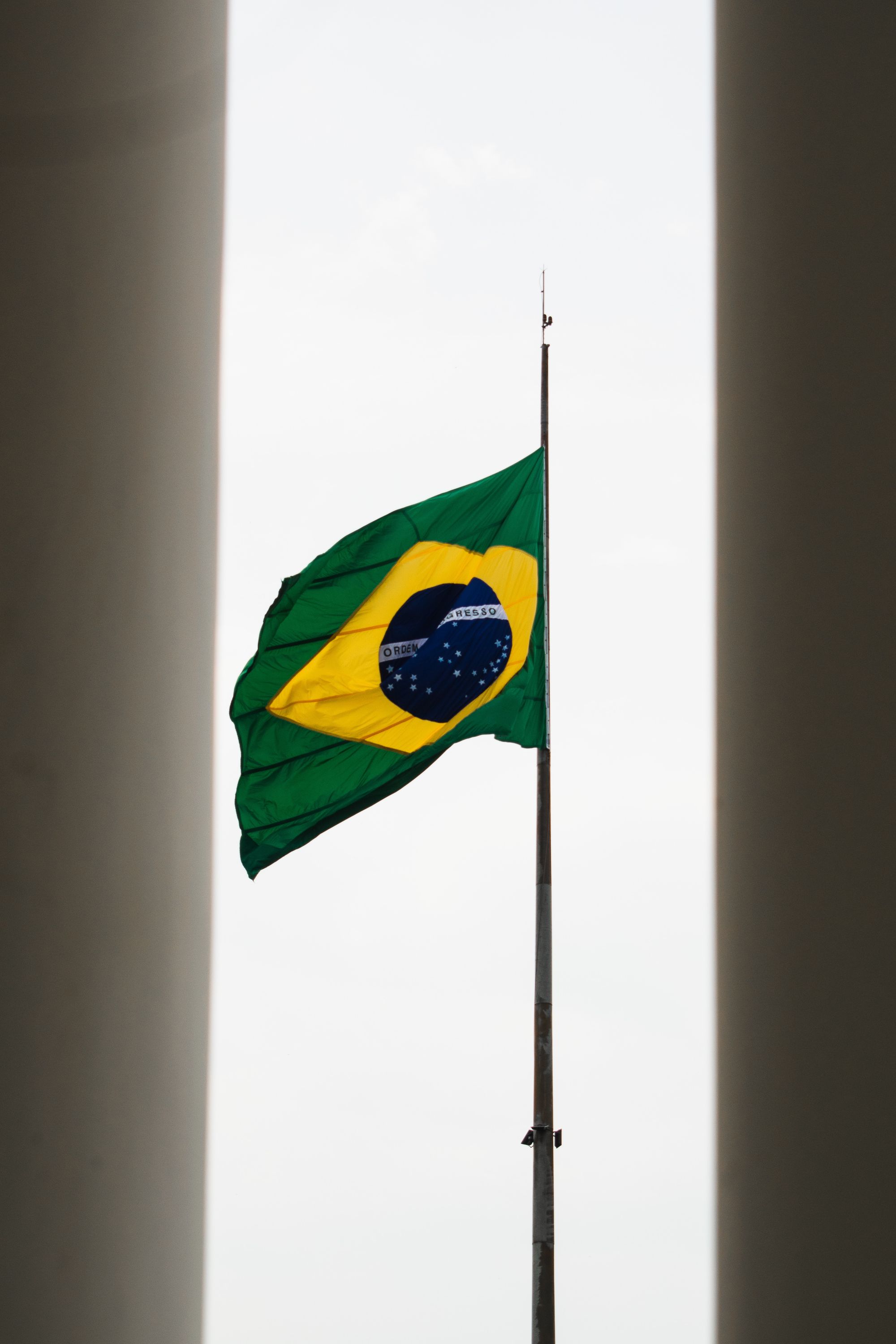By Evanilda Godoi*
Recent research has shown that since the beginning of the global spread of the Covid-19 pandemic, Jair Bolsonaro's presidency has been characterized by “Executive underreach”, and by a fierce campaign against international health recommendations, even those as simple as social distancing measures or wearing face masks, adopted by other institutions like the Legislative branch, Courts, and local spheres of governments like state and municipal Executives branches.
The former President, who was widely recognized for his illiberal rhetoric that repeatedly and strongly criticized democratic institutions, saw the pandemic as an opportune moment to establish a populist form of governance, adopting an anti-establishment rhetoric based on scientific scepticism, anti-intellectualism, and repeated attacks on science, universities, and the official press.
Nevertheless, the former President of Brazil faced more resistance to his authoritarian escalation than other populist leaders such as Orbán in Hungary and Kaczyński in Poland. This happened due to a particular feature of the Brazilian political system, namely the ‘coalitional’ form of presidentialism. This political system is characterized by a parliamentary fragmentation in which the elected President rarely comes to power with a majority in parliament. Therefore, government policies need to be negotiated through post-election agreements and coalitions in which minority parties play an important role in forming the government.
As the Covid-19 pandemic intensified, so did the disagreements between the Executive and Legislative branches of government. Conflicts between the powers became frequent, and sometimes the Judiciary was called upon to interfere in ordinary politics. The pandemic accentuated the disagreements between the powers regarding the role of the State and the legitimacy of its action in the economy, health protection, education, and the granting of social benefits.
The Legislature offered an effective resistance to the government’s denialist measures and played an important role in confronting Covid-19 by using an ordinary constitutional prerogative in presidential regimes: Congress can override a veto. By analysing the matters vetoed by the former President, it was possible to empirically demonstrate his manifest denialism.
According to a sample analysis comprising the legislative process between April 2020 and April 2021 (exclusive of ordinary budgetary vetoes), 70 bills were vetoed, 39 of which referred exclusively to Covid-19. More than 360 normative provisions were vetoed on subjects such as sanitary measures (like mandatory use of masks during the Covid-19 pandemic and some exceptional educational standards during the Covid-19 pandemic) and vaccination, financial aids (for instance, aid for informal workers affected by the coronavirus, emergency actions aimed at the cultural sector during the pandemic, and access to the internet in basic education), specific policies for minorities (emergency plan for indigenous people and support measures for various communities, emergency aid for single mothers, support for family farmers etc.).
The Congress succeeded in overriding 44% of the vetoes. This was a significant number considering that the Brazilian Constitution requires a qualified quorum (absolute majority) to override the presidential veto, which is significantly higher than the simple majority required to pass an ordinary act.
Digging up more data, the vetoes were classified by subject matter, which rendered it possible to identify both political and ideological trends. A significant ideological divergence was found between the Legislative and the Executive branches regarding economic and public health matters. These two topics constituted 69.23% of all vetoes. In the sample, the combined total of vetoes issued for the categories of 'Sanitary Measures' and 'Vaccines' accounted for slightly more than a quarter (25.64%) of all vetoes.
The disagreement between the two branches ran deeper with regards to the protection of people’s health and life. The normative proposals in this group ranged from simple issues such as the regulation of telemedicine use during the pandemic period and a provision discharging employees from the requirement of presenting a medical certificate to justify absence from work in the first seven days of absence, to more controversial issues such as the dispute over the mandatory use of face covering masks and the prohibition of gatherings, especially in enclosed spaces such as religious temples, parties, and any kind of closed event.
The issue of vaccination played a prominent role in these disagreements, with a particular focus on the government’s reluctance to acquire vaccines, evident by the fact that it missed multiple opportunities for early purchase. When a Brazilian research-centre (Butantan Institute) finally managed to develop a national production of the first vaccine in partnership with the Chinese company SINOVAC, the former President attempted to interfere in the regulatory agency responsible for authorizing the distribution. He launched an ideological campaign in the underworld of social medias, spreading fake-news against the vaccine. On the other hand, he advocated for a wider use of chloroquine, a drug that had been proven ineffective in treating Covid-19. It was only on the 17th of December 2020, after rejecting several vaccine acquisitions offers, the former President authorized the opening of extraordinary credit for the purchase of vaccines.
Among the bills that were fully vetoed and later overridden by the Congress, the PL 3.477/2020 stands out. This bill sought to guarantee access to the Internet for students and teachers of basic education in the public education schools. The bill was completely vetoed by the former President, but it was firmly rejected by the Congress, with a wide majority in the Chamber of Deputies and unanimously in the Federal Senate, becoming the Federal Law 14.172, on the 10th of June 2021. After being defeated in the Congress, the Federal Government filed a lawsuit, an action of abstract control of constitutionality (Ação Direta de Inconstitucionalidade- ADI n. 6926), seeking to block the public resources to pay for the Internet for students and teachers in the public schools. This was just one of many examples highlighting the former President’s unwillingness to address the consequences of the pandemic on public education in Brazil, particularly in basic education.
The research also uncovered a strong reluctance of the Executive branch to implement social assistance programs for the population, both in terms of the amount of benefits provided and the range of individuals covered by these benefits. The most controversial one was about the so-called ‘Emergency Aid’, a temporary benefit granted to low-income families or unemployed people. The Executive sought to implement an emergency aid of R$200.00, while the Legislative branch, after a huge dispute, raised the aid to R$600.00 (approximately £100).
The Executive was also reluctant to implement action plans specifically designed to protect indigenous and quilombola populations, facing resistance from the Legislature. The bill 1.142/2020, which attempted to provide an emergency plan for tackling Covid-19 in indigenous territories and support measures to protect various communities, had 22 normative proposals vetoed. Sixteen of then were overridden by the Congress. The Executive vetoed normative proposals trying to guarantee: universal access to potable water; free distribution of hygiene products; cleaning and surface disinfection materials for officially recognized or unrecognized indigenous villages or communities; emergency provision of hospital beds and intensive care units (ICUs); provisions of ventilators and blood oxygenation machines; and provision of internet points in villages or communities which enabled access to information and prevented indigenous people from traveling to urban centres.
Even though the Executive’s will occasionally prevailed, the research findings demonstrated that Legislative resistance played a crucial role in countering austerity policies that overlooked the pandemic’s impact on the general population’s wellbeing. The Legislative branch revealed relatively efficient efforts in ensuring health and sanitary protection measures, particularly in contrast to negationist and highly ideological measures.
The sample analysis suggested that when the former President had a relatively weak parliamentary base and was yet to form an alliance with the Centrão, the Legislative branch exercised some degree of control over the Federal Government’s lack of rationality in implementing measures. The research also demonstrated that the Legislative branch’s capacity for action expanded while the Executive branch weakened in addressing Covid-19. This can be attributed to the radicalism of the former President and the urgency of actions required for epidemiological control amid the pandemic’s emergency context. This radicalism culminated in a parliamentary commission of inquiry (CPI) to investigate Bolsonaro’s liability.
However, control via the Legislature has some limits, and the Executive’s negligence in formulating responses to Covid-19 could not be completely remedied by the Congress’s responses. Studies carried out by the Instituto de Estudos Socioeconômicos (INESC) demonstrated that the non-execution of all the resources released for the fight against the pandemic contributed to Brazil closing the year 2020 with more than 200,000 deaths and 13.4 million unemployed people. The number of deaths from Covid-19 in Brazil increased rapidly in 2021, reaching a peak of 4,000 deaths per day. In the beginning of 2023, the number of deaths from Covid-19 was more than 690,000, according to WHO. The dominant position among the scientific community in Brazil is that the government could have avoided 400,000 deaths had the measures against the pandemic been adopted at the right time and had all the resources available been effectively employed.
To conclude, the Legislative branch has played a fundamental role in tackling the Covid-19 pandemic. But the robust response of the Legislature came at a cost. The increased influence of the Legislature over the Executive branch has the potential to pose significant consequences for future administrations, and there are suggestions that it has led to a weak Executive branch. After Bolsonaro’s government, the Legislature’s control of budgetary choices in Brazil is probably higher than any other democracy. Nevertheless, a comprehensive exploration of this matter lies beyond the scope of the present discussion.
*Adjunct Professor of Law and Coordinator of the Juridical Practice Laboratory, Federal University of Viçosa (Minas Gerais, Brazil); Research Fellow of the Transnational Law Institute, King's College London
TWEET
